When I founded Bush Marketing back in 2008, I did it with the idea of creating an entirely remote agency. There were some downsides at the time, particularly with credibility, but I knew that would eventually pass. Companies did not always like the idea of doing business with a company that didn’t have a brick and mortar location packed with 9 to 5 employees. The benefits however were far too great to ignore.
Two major benefits were lower overhead and access to the best talent in the country (at more reasonable rates), which meant offering excellent work at more competitive prices to our clients, which allowed us the opportunity to grow.
It’s been one of the best decisions I’ve made for my company. We have an incredible team that works across Canada. We communicate seamlessly and we execute at an extremely high level.
Considering the dramatic change in the current work climate, I thought I’d share my experience on how to effectively work remotely, as many people have been thrust into this new way of working.
The Right Tech
We would have no chance of being an effective remote agency if we didn’t have the right productivity apps and technology in place. Whether it’s for efficiency, like communication and project management, or for organization with documents and file storage, a company needs the right tools to do the job well.
These are the productivity apps that have made us successful.
Organization – G Suite
Bush Marketing uses G Suite for documents, for email and for storage. Google has created an extremely well-rounded collection of apps to support a company, remote or otherwise.
G Suite is cloud based so it can be accessed anytime, anywhere from any device. It is also an all-in-one integrated solution, so you don’t need to fumble around and incorporate on any other programs that may not integrate properly.
It has offline support, which is extremely beneficial in case you don’t have WIFI access (which happens from time to time). It also was a strong AI program, so it’s very intuitive in terms of where things need to go, and what language you should use in your communication.
Audio/Video Conferencing – Zoom
For audio and video conferencing, we use Zoom. Zoom has a very robust free application and a paid version as well. It is excellent for meetings and webinars, and there are desktop and mobile versions of the application. Working remotely often means reviewing documents in a collaborative way, and an incredibly important element to Zoom is the screen-sharing feature.
Team Comms – Slack
For team communication, we use Slack. Slack is a workplace communication tool, which is essentially a single place for messaging, tools and file sharing. It is an instant messaging system loaded with add-ons, making it ideal for communication.
You can instant message in private communications between team members and you can also create channels that are based on projects or based on client names.The great benefit here is the real time communication and the reduction of emails which can be cumbersome and challenging to navigate.
Project Management – Trello
Trello is what we use at Bush Marketing for project management. Essentially, Trello is a collaboration tool that organizes all of your projects into boards that have cards that can be dragged and dropped into different vertical columns.
It can be used as a project management tool. It can also be used as a sales CRM (in a rudimentary way), and it can be used as a to-do list. So it’s extremely versatile and user friendly.
Tips For Working Remotely
There is a certain inherent discipline in an office environment. You know you’re being overseen by your employer or your supervisor, or if you are the owner of the company or a high-level individual of the company, you know that your team is there on site should you need them for anything. You just simply walk down the hall, ask a question.
This is not the case with remote work. It can be extremely challenging to run a company or be involved in a company that is working remotely if you don’t have certain disciplines in place in order to do so.
Here are some tips for working effectively in a remote environment.
Over Communicate
This can’t be stressed enough. in order to be effective, you and your team must commit to constant communication. It may seem like overkill, but there is nothing more frustrating and fear inducing than knowing that a milestone must be met, or a task needs to be completed and the person handling has gone quiet.
Make sure that you ask all necessary questions of your team. Schedule team huddles on the phone every day or every other day. If you receive a communication, let the other person know that you are in receipt of the message, even if it’s just a thumps up emoji. If you don’t commit to this, you run the risk of creating stress and tension throughout the company.
Location, Location, Location
Number one, have a defined workspace. One of the things you don’t want to do is start working on your computer in your pajamas while you’re in bed all day. Set up a designated desk or workstation and treat it as you would your station at the office.
Often, people use a local coffee shop for this kind of work, which can be great for getting out and stretching your legs and being around people. Unfortunately, under some circumstances, this may not be attainable, so make sure that you have a clean, clear, designated workspace. You are going to want to create boundaries between your work life and your personal life, because they’re both taking place in your home.
Work Hard/Play Hard
‘
It’s very easy to let your work life and your home life blend into each other when you work remotely. Much like having a defined workspace, you need to have a defined work schedule. Be disciplined in the time that you allot for the work, and also be disciplined in the time that you allot for rest.
Make sure you take breaks. Leave your work behind when you do. Go out for a walk, get some exercise, talk to a friend, grab a quick TV show and a bite to eat. It’s very important that you have separation between your work and your relaxation in order to be successful.
Clock Out
Make sure that you have a defined time to end your work day. Again, your work can bleed into your home life, which should be used for pleasure, relaxation and recharging. It’s very easy to find yourself in a remote environment working 12, 13, 14 hours a day. Don’t do it. Know when to check out and log off for the evening.
Bottom line
Making the transition to remote work from office work can be very challenging, and even more so for the owner or CEO of a company who is migrating to a remote setup. Follow these guidelines and use these best technologies and productivity apps, and you can have success very quickly.
Andy Bush is President of Bush Marketing. Contact him today at 416-214-4298 or andy@bushmarketing.ca for a discussion about how Bush Marketing can help your website do more for your business.
Bush Marketing | Web Design Company Toronto | SEO Company Toronto | Call Today!








